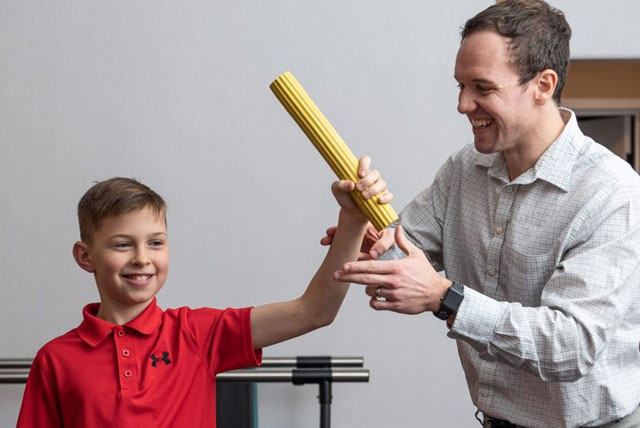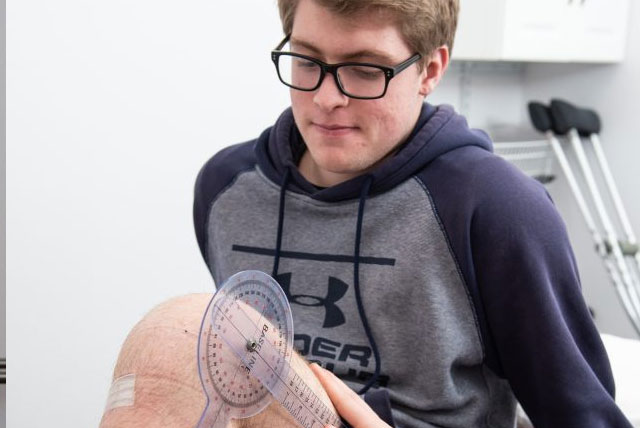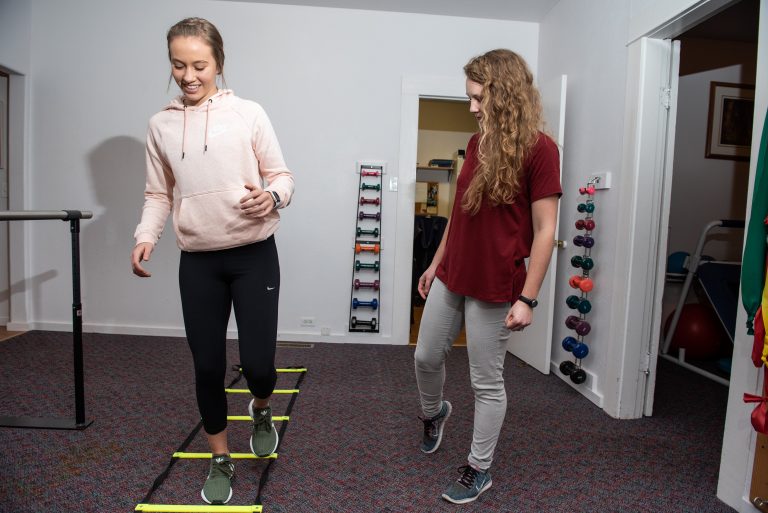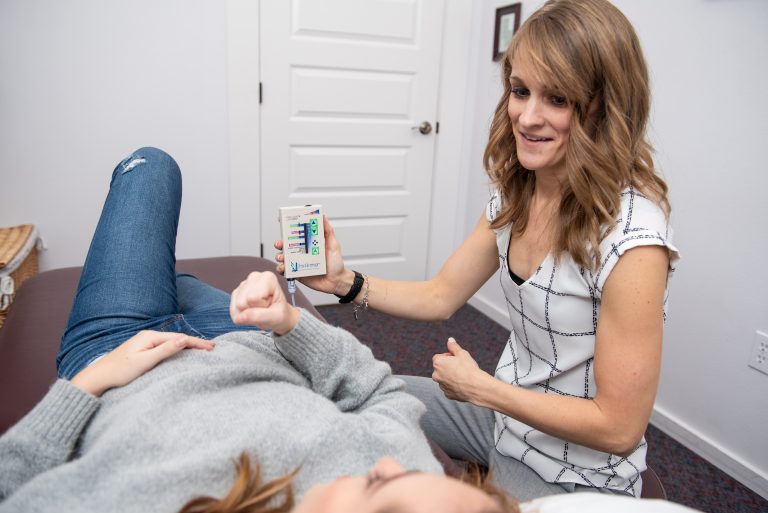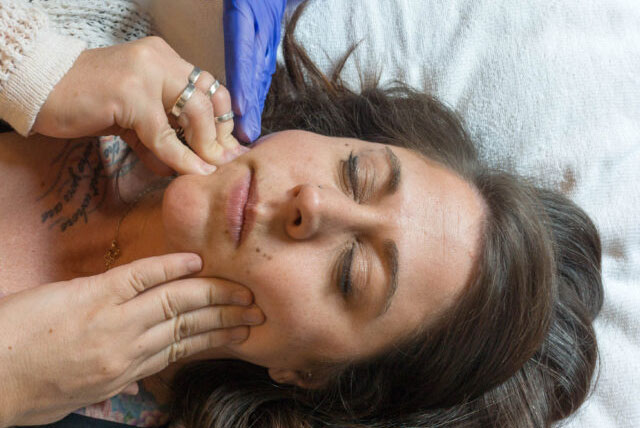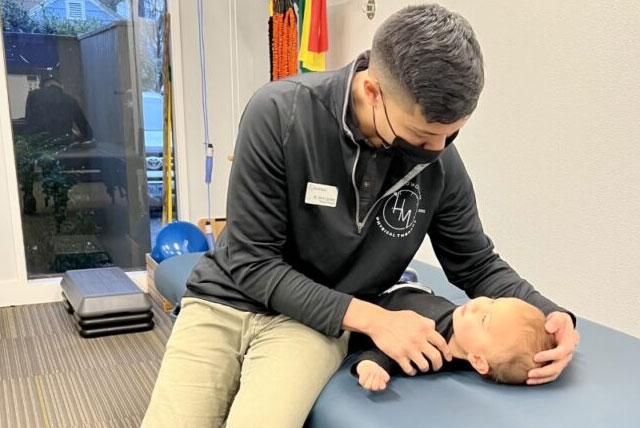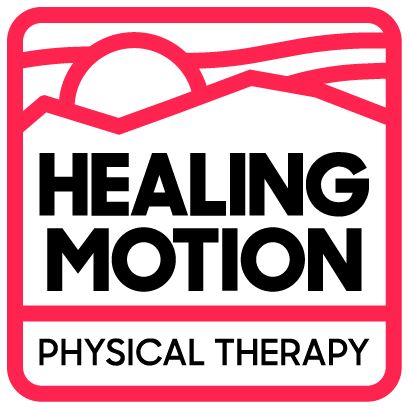We are the experts at treating and reducing muscle, bone, joint, and nerve pain and other symptoms that are limiting your ability to participate in day-to-day functions, work, and recreational activities. Each treatment plan is unique and individualized. We identify the source of your symptoms and help you to correct impairments contributing to your condition.
We offer comprehensive pre- and post-operative rehabilitation services. Pre-operative physical therapy is designed to help you manage symptoms prior to surgery and, more importantly, drastically improve the outcomes following it. Additionally, it results in a significant reduction in the quantity of post-operative therapy visits necessary to achieve the same results.
Whether contact or non-contact, athletics place extremely high physical demands on the human body. When injury occurs, sport-specific rehabilitation is imperative to ensure the best possible outcomes and safe return-to-play. It is not enough just to get you back in the game, we need to get you back confident and prepared to tolerate whatever comes at you with minimal risk of re-injury.
The term “pelvic floor” refers to the muscles that lie at the base of the trunk in the pelvis. These muscles have several important functions including support of the internal organs and stability of the lumbar spine. They also play a vital role in urinary and fecal control and continence. Physical therapy is often an excellent conservative intervention to assist you in addressing these issues, which can significantly impact your quality of life.
The Temporomandibular Joint (TMJ) connects your jaw to your skull. The joint allows your jaw to move up and down and side to side so that you can chew your food, talk, and yawn. TMJ dysfunction (TMD, TMJD) is an umbrella term covering any abnormality of the muscles, bones, joints, and nerves in the area.
Neurological rehabilitation improves the quality of life for individuals with movement dysfunction resulting from a neurological disease or injury such as a stroke, degenerative disease, traumatic brain injury, or spinal cord injury. Physical therapy for these conditions is designed to return you to the highest level of function and independence possible – physically, emotionally, and socially.
Balance is the ability for you to maintain your center of gravity over your base of support. Quite simply, it keeps you from falling. Your balance system is comprised of your vision, vestibular system in your inner ear, and proprioceptors that provide feedback about your body’s position and movement. Feeling unsteady or dizzy is not normal, regardless of your age, and should be evaluated.
You do not have to live in pain. You may have tried modalities like heat or ice or TENS. You may have tried every pain medication available over-the-counter or by prescription. You may have tried various types of injections. You may have tried a surgery, or worse, more than one. Chronic pain is due to an extra-sensitive nervous system and the way in which the brain is processing information from those nerves. We can teach you how to change all of that, educating you about your symptoms and teaching you how to re-gain control over your life.
Lymphedema is an abnormal collection of fluid beneath the skin, often in one or both arms or legs. The protein-rich substance, lymph, fails to properly drain and re-enter the circulatory system as a result of damaged lymphatic vessels or missing lymph nodes. Damaged lymphatic vessels may occur as a result of an acute injury such as an ankle sprain. Missing lymph nodes are often due to intentional removal in the treatment of cancer. Complete Decongestive Therapy (CDT) is the gold standard in managing lymphedema and is carried out by physical therapists specialized in working with this condition.
At Healing Motion, we understand that the rehabilitation process for work- and auto-related injuries is unique. These accidents can be devastating, often times resulting in multi-site injuries and presenting complexly. The muscles, bones, joints, and nerves of the human body are all connected. We are experts at identifying the structures that are the source of your symptoms and relating them back to one another.
Pediatric physical therapists treat children under the age of 18, from infants to teenagers. They see children for a variety of different reasons, including developmental issues related to gross motor skills, fine motor skills, balance, as well as other neurologic or orthopedic conditions.

